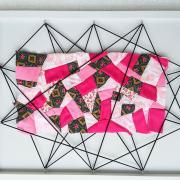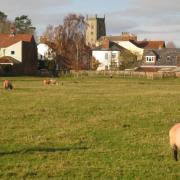A Shaw thing - Does a West Yorkshire Eliza Doolittle do a lot for Jo Haywood?
A Bradford girl in a tacky trackie flogs her wares on a street corner. Her hair is lank and tatty and she looks like her last square meal was a slice of toast (marg, no jam).
It might seem like classic Andrea Dunbar territory, but this isn’t Rita, Sue and Eliza Too. Instead, it’s a fascinating new take on Pygmalion, which sees Bernard Shaw’s common cockney sparrow born in the shadow of Bow Bells transformed into a poor West Yorkshire pigeon born in the shadow of Bradford Alhambra.
She’s still a desperately down-at-heel Doolittle, but she’s now a modern-day northern soul who’s reference points are Holme Top, Heaton and Horton Bank rather than Hertfordshire, Herefordshire and Hampshire (although the likelihood of hurricanes remains roughly the same).
Henry Higgins and Colonel Pickering are similarly transformed from tweed-wearing bufton-tufton chums to hipster sound artists enjoying an unmistakably modern bromance.
Drippy but sweet Freddy Eynsford-Hill has swapped his cravat for a baggy sweatshirt and trainers. Mrs Higgins is a contemporary horticulturalist whose retro-chic home resembles a human-sized terrarium.
And the staging is a masterclass in modernism, with scenes set in glass boxes, film segments, live projections, lip-synching, bursts of techno and voice manipulation.
But (and this is a very important but indeed), if you’re a Pygmalion purist, don’t panic. This is still very much Bernard Shaw’s play. Director Sam Pritchard might have taken a radical leap in imagination when it comes to casting and staging, but he sticks firmly to the original script (with the addition of the occasional well-timed f-bomb).
It’s surprising, and not a little disheartening, how relevant the play’s central themes remain today. Modern Britain is as class-riven as ever, the financial divide is a gaping chasm and gender equality is still an aspiration rather than a reality.
More than 100 years after it was first performed, Pygmalion still feels current and, in this reimagining from West Yorkshire Playhouse (in partnership with Headlong and Nuffield Southampton theatres), brings the continuing battle for equality into razor-sharp focus.
Much praise must go to Pritchard and his immensely talented design team for their visionary use of the relatively small Courtyard space and their heady combination of nerve and verve in creating a successful multi-media experience (something that can be confused and jarring in lesser hands).
But no one shells out for a theatre ticket to see two hours of clever staging, so what about the performances?
In a very strong cast, West Yorkshire actor Natalie Gavin stands out, despite being a little scrap of a thing, as a feisty, fiercely honest and acerbically witty Eliza. She’s utterly charming, even when effing and jeffing in a Bradford accent with vowels flatter than a Yorkshireman’s cap.
Her relationship with Professor Higgins, played with an electrically-charged, ADHD-ish energy by Alex Beckett, is beautifully and, even more importantly, believably played out to a conclusion that is both sad and completely right.
The leads get great support from the rest of the cast, most notably Raphael Sowole, whose charming, gentlemanly Colonel Pickering helps to soften Higgins spikier edges; Liza Sadovy, whose Mrs Higgins offers wise words and a wicked wardrobe; and Gavi Singh Chera who, as Freddy Eynsford-Hill, is the picture of wide-eyed innocence (think Bambi in a pair of white Nike trainers and you won’t be far off).
Modern reimaginings of classic plays can all too easily go horribly wrong, with dated ideas and themes shoehorned artlessly into contemporary spaces for no good reason, other than it saves a few pennies on the wardrobe budget.
This, however, is an absolute triumph – a play about transformation artfully transformed into an exciting, funny, thought-provoking exposition of the divides that still cleave the classes, the country and the sexes today.



























